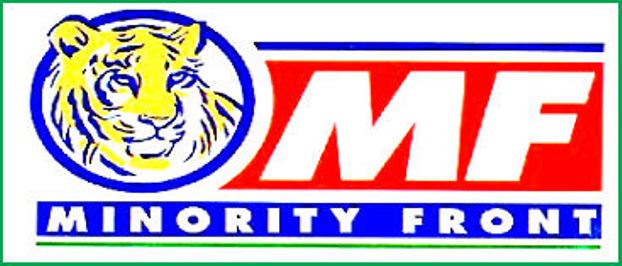The Minority Front (MF) solely concentrates on the Indian vote and is an ethnically-based party with most of its support coming from KwaZulu-Natal, which is home to the largest Indian population in the country and outside of India.
The party will contest their first general elections (2014) Shameem Rajbansi, following her husband, Amichand Rajbansi’s passing in 2011. She has always maintained that her husband’s passing would not be the end of the party.
Stemming from its founder leader Amichand Rajbansi’s experience in the House of Delegates in the 1980s, the strategy of the MF is to work for change from within the system. The party’s ability to command the support of a large portion of the KZN electorate puts the MF in the position of king makers in the province at times when support for the ANC and the IFP is evenly balanced.
Following the 2000 local elections, the MF threw its weight behind the ANC and enabled the party to gain control over the Durban city council. Similarly, after the 1999 election, the MF agreed to use its one seat in the National Assembly to help the ANC control 267, or two-thirds, of the NA votes.
The core of the MF strategy is to safeguard Indian interest under an African-led government. The party aims not to create tensions between Indians and African sections of the electorate and promises to make a deal with the African majority so as to ensure that Indians get their share of government services and other benefits.
In the 1994 and 1999 elections, the MF campaigned on the platform that it would work with whatever party won the majority of the votes in KZN and at the national level. Rajbansi believed that the MF “should stand in ‘co-operative co-existences’ with ruling parties,” and asserted that opposition politics that criticized the government merely for the sake of opposition did not “contribute to the reconstruction and development of South Africa.”
In 2004, the MF conducted its campaign along the same lines of constructive engagement. In the 2004 elections, the The African National Congress managed to clock up 46.98% of the votes in the hotly contested province. The Inkatha Freedom Party achieved 36.82% and its coalition partner, the Democratic Alliance, had 8.35%, while the IFP’s other alliance partner, the Freedom Front Plus, received 0.28% of the poll. The Minority Front had 2.61%, the African Christian Democratic Party 1.78%, the United Democratic Movement 0.75% and the New National Party 0.52%. – edited by Sipho Kekana
Amichand Rajbansi believed that the MF “should stand in ‘co-operative co-existences’ with ruling parties.”
– By


